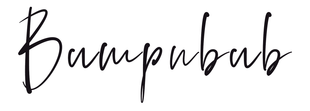5 things I wish I knew about breastfeeding before becoming a mum
This blog was originally written for my friends at CuboAi - the most amazing baby monitor around. Use code: Bumpnbub23 for an amazing discount!
Breastfeeding is such a wild ride, something I wasn’t expecting. As a first-time mum, breastfeeding is a whole new skill to learn, which can be stressful and frustrating for you and your baby at times. As you grow more and more confident, things can feel more natural to you and slowly it will get easier as time goes on.
These are 5 main points I wish I knew before becoming a breastfeeding mama.
As a first-time mum, even with a good latch I still found breastfeeding uncomfortable and painful at times in those first few weeks. Breastfeeding is a whole new sensation, and wow do newborns have a strong suck. When your baby is cluster feeding frequently your nipples might get tender or you may feel some nipple pain when bub initially attaches in the early weeks. Over 50% of mothers experience nipple pain or discomfort in the first month postpartum, and often don’t seek help. Persistent nipple pain is one of the most common reasons why mothers stop exclusively breastfeeding. I always encourage new mums to inspect their nipples for damage post-feed and seek out professional support if they are experiencing severe nipple pain or damage to try and resolve the issue. For me, it was simply time to get used to breastfeeding as a first-time mum.
Every mum should feel comfortable to feed their little one wherever they are and whenever they need to eat. In saying this, I know it is easier said than done especially in the beginning and depending on the environment you are in or who you are with. It can be intimidating to breastfeed in public at the start, this is normal. I felt more comfortable feeding in public with easy access tops on that I could quickly attach bub to the breast without exposing too much skin or using a light wrap draped over my shoulder. A lot of shopping centres also have amazing parent rooms you can use to comfortably feed your baby. Once you build more confidence with breastfeeding mama and latching is easier, you will be able to feed wherever and whenever.

I soon learnt how hard breastfeeding was in the beginning and how much of a learnt skill it is. Your baby does instinctively know how to suck, but they are still learning and mastering the art of breastfeeding, as are you. Nipple soreness is common at the start, but this did settle for me as my body got used to breastfeeding and my baby got more efficient at latching and feeding. Establishing milk supply and a good attachment can take weeks, persistence and assistance from health professionals. Australian Breastfeeding Association state it can take 6-8 weeks for the breastfeeding dance between mama and baby to find its rhythm. Each baby and mother is unique with different patterns, so try not to compare yourself or your baby to others. As time passed, breastfeeding did get easier; those first 6 weeks are tough though, lean on those around you for help and support- I sure did.
The recommendation when breastfeeding is to avoid a bottle and dummy until you are happy with bub’s attachment and your breastmilk supply is established, which can take 2-4 weeks. At the end of the day, you have to do whatever works for you and your baby, there is no right or wrong decision. It is your body and your baby, so you and your partner make the decision of whatever is best at the time. If you need to go out for some time to yourself, you want your partner to do a feed to take the pressure off you or your nipples are super sore and you want to rest them for a few days, then express and do that bottle feed. Having my partner give our daughter a bottle of breastmilk helped provide some flexibility back into my life for when I wanted to go out alone for an appointment or to see a friend. ABA has some great tips when bottle feeding a breastfed baby, how to store breastmilk and how to prepare a bottle.
Majority of mothers will express or pump at some point in their feeding journey so someone else can feed bub, or as a preference. When I pumped postpartum I would get minimal breastmilk compared to what I was producing, therefore I never had a heap of milk in my freezer. I had to remind myself frequently that a pump is never the same or as strong as my baby’s suck, therefore not everyone has a huge stash of breastmilk in the fridge or freezer. What you do express through a pump does not accurately reflect your milk supply or the same amount your baby may get at the breast. If you are expressing for any reason, try and have bub skin to skin, close to you or look at photos or videos of them to help your hormone response. Other points to help your breastmilk supply when expressing or breastfeeding; stay hydrated, eat frequently, rest when you can, keep your body relaxed and not stressed while feeding or expressing, seek professional advice if you are worried about low supply or bub isn’t gaining weight.
Blog by midwife and mum, Aliza Carr from Bumpnbub
